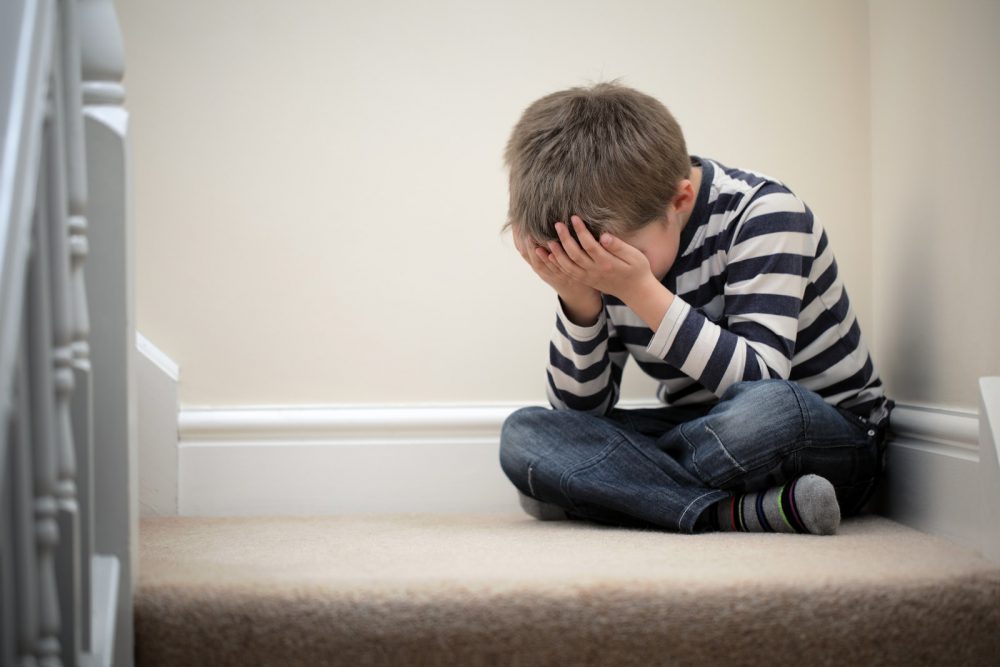
Today is Childhood Depression Awareness Day, drawing attention to the children who suffer from depression – the most common mental health issue in the United States. A conservative estimate says 1-in-33 children have some form of depression.
According to a 2015 study by Pew Research Center, there’s something 45% of parents do that might be contributing to a compromised mental health state in their children. Your parents may have done it to you. There’s a good chance you’ve done it to your kids.
Spanking.
For generations, spanking has been used as a deterrent for defiance and unruliness in children, but a study out of two universities – University of Texas at Austin and University of Michigan – found that spankings actually don’t deter this behavior.
What’s worse is that it can have devastating consequences on children as they grow older.
According to the study, Spanking and Child Outcomes: Old Controversies and New Meta-Analyses, children who are subject to spankings are more likely to be aggressive adults, have worse relationships with their parents and develop alcohol and substance abuse problems.
Study Findings
The research teams were led by developmental psychologist Elizabeth Gershoff and University of Michigan School of Social Work professor Andrew Grogan-Kaylor. Their teams explored 75 studies that tracked more than 160,000 children, and they found no links between spankings and improved behavior.
They did discover, however, that spanking can hurt a child’s IQ. It can stunt his or her ability to learn. It can lead to aggressive behavior. Open-handed slaps to the buttocks (or other body parts) can increase the likelihood of mental health issues.
“In childhood,” the study argues, “parental use of spanking was associated with low moral internalization, aggression, antisocial behavior, externalizing behavior problems, internalizing behavior problems, mental health problems, negative parent-child relationships, impaired cognitive ability, low self-esteem and risk of physical abuse from parents. In adulthood, prior experiences of parental use of spanking were significantly associated with adult anti-social behavior, adult mental health problems and with positive attitudes about spanking.”
The research isn’t perfect. The teams couldn’t launch a study where they controlled which kids were hit and how often the spankings occurred. It’s also worth noting that kids who are high-risk for aggression and future issues could give their parents cause to spank them more often. But despite that, Gershoff does believe that spanking can lead to these problems.
Even if it doesn’t lead directly to these negative outcomes, Gershoff concedes, it isn’t doing any good. Only one of the 75 studies she investigated credited spanking with any positive outcome.
The study is also quick to point out that children likely won’t develop any significant mental health issues because of some intermittent spankings. But, as the research teams said, that’s not exactly the point. It’s incremental. If one child in 10,000 suffers a negative consequence from spanking, extrapolate that over the entire population. It makes a difference.
“Although the magnitude of the observed associations may be small,” the research teams said, “when extrapolated to the population in which 80% of children are being spanked, such small effects can translate into large societal impacts. Parents who use spanking, practitioners who recommend it and policymakers who allow it might reconsider doing so given that there is no evidence that spanking does any good for children and all evidence points to the risk of it doing harm.”
Depression in Children
How can you tell if your children are suffering from depression? Here are a few common symptoms to watch out for.
- Irritability
- Difficulty sleeping
- Change in eating habits
- Mood swings
- Loss of energy
- Withdrawing from friends and activities
Everybody has bad days. Some people have bad weeks. But if these symptoms last longer than two weeks, and if they interfere with school and family, then your child may be suffering from a depressive disorder.
There are several types of depression. According to the Anxiety and Depression Association of America, major depression is categorized by a lasting feeling of sadness or worthlessness day after day. Dysthymia is another type of depression which won’t directly interfere with day-to-day functions, but it can leave kids feeling down for a year or longer. Bipolar disorder can be spotted in children who have episodes of low-energy depression followed by explosions of anger or frustration.
If you feel like your child suffers from any of these types of depression, take action. Talk with your child. Speak with a doctor. Do not dismiss your concerns. Be supportive. Depression can be treated, so seek help and make sure your child is living the healthiest life possible.









